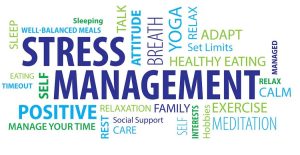People often forgo sleep in favor of productivity, spending time with friends, or countless nights at the computer. However, adequate sleep is crucial for mental health. Adequate sleep allows your brain to rest, recover, and recharge. This process directly impacts your mood, focus, and mental balance. On the other hand, insufficient sleep can, over time, lead to irritability, anxiety, and even depression. Science has repeatedly proven that adequate sleep is more than just a perk; it’s essential for your mental health and brainpower. Learning how to improve your sleep and understanding the relationship between sleep and mental health can radically transform your emotional well-being and quality of life.
The Complex Connection Between Sleep and Mental Health
Sleep and mental health are inextricably linked. When you get enough rest, your brain processes memories and emotions more efficiently, allowing you to cope more calmly with daily stressors. Lack of sleep slows this process, making it harder to manage negative emotions and increasing your risk of mood disorders such as low mood and anxiety. During deep sleep, the brain clears toxins, improves neural pathways, and helps you focus and make decisions. On the other hand, insufficient sleep can leave you feeling confused, irritable, and unable to concentrate. Chronic sleep deprivation can gradually weaken your thinking and mood. In short, sufficient, quality sleep is a natural way to combat depression. It can help you feel better and see things more clearly.
How Sleep Deprivation Affects Your Life
When you don’t get enough rest, the stress-regulating mechanisms in your brain become disrupted. When levels of the stress hormone cortisol rise, your body switches to a constant “fight or flight” mode. This constant stress can leave you feeling worn out, angry, and depressed. Sleep deprivation can also disrupt your limbic system (which regulates your emotions), making you more sensitive to negative events. Studies indicate that people who regularly sleep less than six hours a night are more susceptible to anxiety, mood swings, and memory loss. Stress makes it harder to fall asleep, which in turn makes you more stressed. This cycle repeats, making you feel even more stressed. To break this cycle, you need to prioritize regular, restorative sleep.
Why Sleep Quality Matters More Than Sleep Quantity
Adequate sleep isn’t enough; you also need excellent sleep. During deep sleep and REM (Rapid Eye Movement) sleep, the brain processes information, repairs cells, and strengthens memory. Even if you sleep eight hours, your brain can’t reach these restorative stages if your sleep quality isn’t good—for example, because you wake up frequently, are disturbed by noise, or are still working on the computer late at night. Sufficient, good-quality sleep means you wake up feeling refreshed, alert, and mentally stable. This stage determines your ability to “get through the day” and truly enjoy your life. Paying attention to your sleep routine, environment, and habits can help you relax and prepare for rest, and improve sleep quality.
The Science of Sleep and Mood Control
Your brain processes emotional events and resets your nervous system during sleep, especially during REM sleep. That’s why problems seem less daunting after a good night’s sleep. Sleep acts as your body’s emotional doctor: it organizes, filters, and stores emotional information. Disrupted sleep makes it harder to manage your emotions, leading to hasty decisions and exacerbating negative emotions. Brain scans show that people who don’t get enough sleep have an overactive amygdala (the brain’s emotional response center). At the same time, the prefrontal cortex, responsible for rational thinking, is less active. That’s why waking up at night can make even small problems seem big.
Practical Habits for Better Sleep and Mental Health
Maintaining a regular and well-planned sleep schedule is the first step toward better sleep quality. Try to wake up and go to bed at the same time every day, even on weekends. This trains your body clock to maintain a consistent rhythm. Develop a relaxing bedtime routine. Reading, light stretching, or meditation are all beneficial options. Avoid coffee, alcohol, or heavy meals before bed, as these can prevent you from achieving deep sleep. Blue light from computers can suppress melatonin production (a hormone that makes you sleepy) in the hour before bed. A cool, quiet, and dimly lit bedroom is also conducive to sleep. The goal is to create a space where both your body and mind can relax.
When to Seek Professional Help for Sleep Issues
If, despite lifestyle changes, you still have trouble falling asleep or staying asleep, it may be time to consult a doctor. Sleep apnea, nightmares, or chronic insomnia can significantly impact your mental health and may require medical attention. Cognitive behavioral therapy for insomnia (CBT-I) and other therapies have proven highly successful in improving people’s sleep and mental well-being. If sleep deprivation is making it difficult for you to perform daily tasks, don’t hesitate to consult a sleep specialist or mental health professional. By addressing underlying issues early, you can prevent more serious mental health problems and restore balance to your life.
Conclusion
Getting enough sleep is crucial for both your mental and physical health. When you prioritize adequate sleep, you give your brain the tools it needs to manage emotions, manage stress, and stay focused. Small lifestyle changes, such as maintaining a regular sleep schedule, creating a quiet space, and practicing mindfulness, can have a significant impact on your mental and sleep health. Remember, taking care of your mental health starts long before you decide to prioritize rest. Taking care of your sleep today can help you feel healthier, calmer, and more resilient tomorrow.
FAQs
1. How many hours of sleep does someone need for mental health?
For optimal brain and emotional function, most people need 7 to 9 hours of quality sleep every night.
2. Does sleep deprivation really cause stress or sadness?
Yes, chronic sleep deprivation can alter the brain chemicals that regulate mood, increasing the risk of anxiety and sadness.
3. What’s the best way to fall asleep quickly?
Develop a relaxation routine before bed, taking an hour away from screens and practicing deep breathing to clear your mind.
4. Does a daytime nap affect your sleep quality at night?
A 20- to 30-minute nap can be very relaxing, but a longer nap or staying up too late can make it difficult to fall asleep.
5. How do I know if my sleep problems are serious?
If you haven’t been able to sleep for several weeks, or if sleep deprivation is affecting your mood and energy, consult a doctor or sleep specialist for help.



